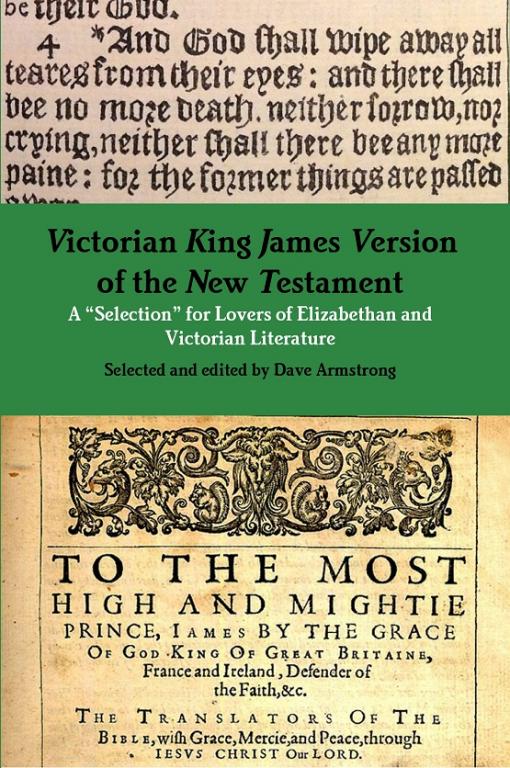
***
I. INTRODUCTION
Time and again, in discussing the Bible’s teachings I hear the reply, “But that’s only your interpretation” as if no certainty can be obtained as to what the Bible affirms, especially in particular matters. Diversity of opinion is often presumed to prove that there is no correct interpretation.
First of all, in approaching the Bible, one must either accept or reject the Bible’s own claims: that it is the Word of God: God’s Revelation to mankind, written by men under divine inspiration. If this proposition is rejected, the Bible, hopefully, will at least be regarded as a unified collection of books that are united thematically in terms of theological outlook.
Otherwise, Bible interpretation will be practically futile, if not impossible, since the very appellation “Bible” would be a misnomer. Assuming then, that the Bible is considered as a unity, with some sort of common thread running through it, a rational method of interpreting this lengthy and sometimes difficult document will be necessary.
It will do no good, intellectually, to read the Bible with the intent of forcing it into an outlook and worldview totally foreign to the biblical writers, such as eastern monism, occultic mysticism or existentialism. Nor will it be of any benefit to form opinions on the Bible without reading enough of it to even have a bare acquaintance with its contents or stylistic colors. And above all it is supreme folly, from a literary standpoint to read Scripture with a hostile attitude.
The Bible will by no means be understood by people with any of these mentalities any more than a person’s viewpoint can be comprehended by talking with him briefly, once or twice, and going by hearsay, or by quarreling violently with him.
It’s amazing how many people think they know all about the Bible, when they haven’t read 1% of it. One wonders why this is; would anyone, for example (besides a drunk person), comment “authoritatively” on Homer, Plato, or Shakespeare without having read their books? It is my firmly held conviction that if a person reads the Bible with a truly open, unbiased mind, ready and willing to let it speak for itself, its message, broadly speaking, will be abundantly clear.
Scripture is clear about precisely those tenets which Christians hold in common: monotheism and the love of the one God for us, the way to salvation, the sinfulness of human beings, the centrality of Jesus Christ as our Savior and Redeemer, and as the God-man, judgment, Jesus’ and our own bodily resurrections to eternal life, a lofty set of ethical principles etc. No particular interpretive or hermeneutical skill is needed to recognize these basic biblical affirmations.
If there is any one maxim which sums up the whole endeavor of Bible interpretation, I think it is this: The Bible must be studied and read like all other literature is studied and read. Scripture contains many types of literary forms — such as historical narrative, poetry, and legal contracts. These forms must be read according to their intention and purpose. No one writes a love letter in formal legal language and no one reads one as if it were a legal contract; the intent and form is entirely assumed beforehand. Likewise, poetry about nature in the Bible is not usually meant to be taken literally, or as a scientific hypothesis (e.g. “and the trees clapped their hands” — Isaiah 55:12).
Interpreting the Bible “literally”: that dreaded and disparaged practice perceived as a “hallmark” of “fundamentalists” lacking in intellectual capacity, means determining literary forms and their purpose in the Bible and reading accordingly. It does not mean ignoring all poetry, metaphors, parables, hyperbole, etc., and interpreting such passages with a wooden literalism.
Ironically, those trying to discredit the Bible are guilty of this practice much more often than are the so-called “fundamentalists” whose methods they despise. Such hyper-literalism would lead to God having physical “wings” (Ps 17:8) and commands to pluck out our eyes (Mt 5:29) and move mountains into the sea (Mt 21:21). Many alleged contradictions in the Bible are easily solved simply through identification of the form and purpose of each individual section.
Certain principles of reading lie at the center of all interpretation whatsoever. They apply equally to legislative, theological, philosophical, and common everyday language. Serious critical analysis is impossible without them. The Jewish rabbinical schools used these rules, and so did Jesus, Paul the apostles the Church Fathers, the master theologians of the Middle Ages and later, such as Aquinas; Luther, Calvin, Wesley, and all the great Bible scholars of the last two centuries who regarded the Bible as a unified entity.
After an overview of the different literary types in the Bible we will examine the “Six Rules of Interpretation” which underlie all intelligent, productive Bible study. The rules have a universal application, but they will be discussed in terms of biblical application.
II. LITERARY FORMS IN SCRIPTURE
1) Historical Narratives
Narratives are the most common form in the Bible; can be read at face value and “literally,” just like any other historical accounts are read. Includes lists, genealogies, uttered statements, prayers, etc. (Genesis; Ex 1-19, 31-40; Joshua through to Nehemiah, the Gospels, Acts)
2) Legal Contracts
This literature deals with technicalities of laws and covenants and their application. (Ex 20-30; Lev 11-22, 26-27; Deut 11-30)
3) Manuals of Religious Rituals
Descriptive of ceremonies that are usually symbolic of deeper meanings. (Lev 1-7, 23-25; throughout legal literature)
4) Logical Argument
Same purpose and intent as in philosophical discourse in general. (Romans 1-3; 1 Cor 1-2; Acts 17:22-31; Mark 14:1-6)
5) Letters or “Epistles”
These are personal letters of counsel, exhortation, and practical religious instruction, written to churches. (Romans through to Jude; mostly written by Paul the apostle)
6) Poetry
Most common form after narrative. Every book of the Bible probably has some poetry, but the following books are nearly entirely poetry: Psalms, Proverbs, Song of Solomon, Job, Lamentations. Hebrew poetry uses parallelism rather than rhyme (Ps 33:6, 34:13, 46:7, 95:6; Prov 10:4, 13:1, 19:5, Mt 5:42), hyperbole, or exaggeration (Ps 1:2, 18:29, 42, 42:3, 137:9), and heavy use of visual images intended to stimulate our imagination and feelings as well as thinking (Ps ch. 1, 18:2, ch. 23, 102:26; Is 40:11, 45:9; Ezek 34:31; Matt. 23:37). Five notable sub-categories of poetry can be identified:
A) Satirical and Cynical Memoirs — Ecclesiastes.
B) Romance — (also an allegory of God and His people) — Song of Solomon.
C) Proverbs — Proverbs, some of Ecclesiastes; short, pithy, memorable, general observations about life (as in Confucius’ sayings). They are not absolute and are unconcerned with exceptions to the rule; they are intended to be applied according to situations.
D) Parables / Allegory — Intended to teach the listener by presenting interesting illustrations, from which can be drawn moral and religious truth. (Mt 13:1-53, 20:1-16, 22:1-14; Mk 12:1-12; Luke 15:11-32, 16:1-9)
E) Prophetic / Apocalyptic Literature — Largely poetic and similar to “preaching”; points to actual happenings in the future, and usually serves as a warning directly from God through the prophet, His messenger. Apocalyptic writings refer especially to the end of the world, Armageddon, the Last Judgment, etc. (Isaiah through to Zechariah; Revelation, Mt 24)
III. THE SIX RULES OF INTERPRETATION (HERMENEUTICS)
1) Rule of Definition
Any study of Scripture must begin with a study of words, which have the same meaning in the Bible as they have in any other document, and in the society in which they were used. The New Testament writers used Koine or “common” Greek, which was the language of the common man. Translations seek to render Hebrew or Greek words into their equivalents in English. Some translations, it should be noted, are more literal than others, and some are paraphrases, which translate thoughts rather than words. No translation is perfect: some meaning is always lost.
In order to intelligently understand biblical words, it is very useful to obtain a Concordance, which traces English words through Scripture and gives the original word translated. Even better, Hebrew and Greek Dictionaries and Lexicons can be purchased which require no knowledge of these languages. They define precisely the meaning of the original words, which can have different definitions according to context (just like English words). Also, it can be determined how many words are translated into one English word, which is a common occurrence in translations. Of all the rules, this one is probably abused the most. Yet it is very elementary.
2) Rule of Usage
It is important furthermore, to learn how words were used and understood at the time and place that they were spoken or written. Old Testament words are to be interpreted according to Hebrew usage, and New Testament words in terms of the 1st century Greek-speaking world. Jesus was a Jew spoke primarily to and moved among Jews, and used idioms and phrases plainly comprehended by Jews. This must be taken into consideration; all the writers must be interpreted in this way. Bible Commentaries and Lexicons are good resources for applying this principle.
3) Rule of Context
This rule is probably violated most, after rule no. 1. Verses are pulled out of a text and interpreted in isolation, apart from their surroundings. Many passages derive all their force from the connecting thoughts before and after them. The original Bible didn’t even have verse numbers, which, for all their utility, have unfortunately contributed to the tendency of quoting out of context. Most people are familiar with religious fanatics or cults that place an undue emphasis on one verse (also a violation of Rule no. 6). The best way to avoid this pitfall is to simply read whole passages in order to arrive at a better understanding of the thrust and intent of individual segments.
4) Rule of Historical Background
The culture in which each book was produced must also be somewhat understood. This means some knowledge of: Jewish history and culture from at least the 2000-year period from Abraham to Jesus. The Bible was written in various cultural milieus, and the writers reflect their surroundings. They also exhibit expected personality distinctives.
The intelligent reader will seek to know as much as possible the thoughts of the authors, rather than reading into texts the bias and outlook of his or her own thoughts and times. In this regard Commentaries and Bible Dictionaries or Encyclopedias are very helpful, as well as standard historical sources. Archaeology has also provided much insight.
5) Rule of Logic
The Bible writers presupposed the basic rules of logic, and Scripture is to be interpreted as we interpret any other volume, by a reasonable and rigid application of the same laws of language and grammatical analysis. A good dose of common sense wouldn’t hurt either, since when it comes to the Bible and its interpretation, it seems like fools come out of the woodwork from all directions. The mastering of rudimentary logic will suffice here, accompanied by the willingness to treat the Bible in the same way, and with the same standards as other books: fairly and logically.
6) Rule of Unity
If the Bible is perceived as a unity, then passages within it must be construed with reference to the whole. Misunderstanding or ignorance of this rule is the cause of countless unnecessary and/or absurd assertions about what the Bible teaches. Scripture is, first and foremost, a book of salvation; of God’s dealings with human beings, and of His desire to transform our characters and natures in a positive way.
Each book in the Bible contributes to the whole and fulfills a specific purpose. To a large extent, the Bible interprets itself, by the comparison of Scripture with Scripture (exegesis), on the basis or similar subject matter. If this method is utilized, each passage will be more clearly understood within the context of the whole Bible, and much confusion and lunacy will be avoided. Concordances, Topical Bibles (which arrange passages by topic) and books on Systematic Theology or particular doctrines will serve as a great aid in this endeavor.
IV. CONCLUSION
In light of the above, many major differences of opinion about the Bible can be explained as due to one or more of the following factors:
1) Ignorance of the text of the Bible.
2) Ignorance of the principles of interpretation, which apply to all literature.
3) Inconsistent application of correct principles of interpretation.
If a person will apply the “Six Rules” correctly and consistently, read with an open mind, and accept the supernatural help of the Holy Spirit, which is God (John 14:26, 16:13), he can attain an intelligent and informed understanding of the Bible. Finally, it’s good to bear in mind the important role of Church history, Bible scholarship, and teachers at local churches in assisting and guiding individuals in their search for the true meaning of the Scriptures.
It is certainly prideful folly to disregard all interpretation that has come before (a “Rule of Precedent” if you will). No young scientist, for example, starts from scratch in trying to understand the natural world. He always accepts the validity of the rich history of prior scientific discovery. People who isolate themselves and come up with a novel “special revelation” of what the Bible says tend to go off on a tangent and some even go on to start up the dangerous sects or “cults” that we hear about in the news.
The Bible is not an esoteric “mystery book” which refuses to reveal its “secrets” to all but the most diligent; nor does it require a Ph.D. degree or perfect saintliness of its readers. It does require a fair amount of reading, an open mind, and a little effort in learning basic rules. It is no waste of time to learn such things, and there is nothing to lose. Anyone who learns to correctly read this magnificent “Book of Books” will reap immense profit and benefit to their souls and spiritual life.
***
(originally written in 1987 as an evangelical Protestant)
***
Summary: The Bible is not an esoteric “mystery book”. But it does require application of rules of Bible interpretation, a fair amount of study, an open mind, & a little effort in learning basic rules.
***













